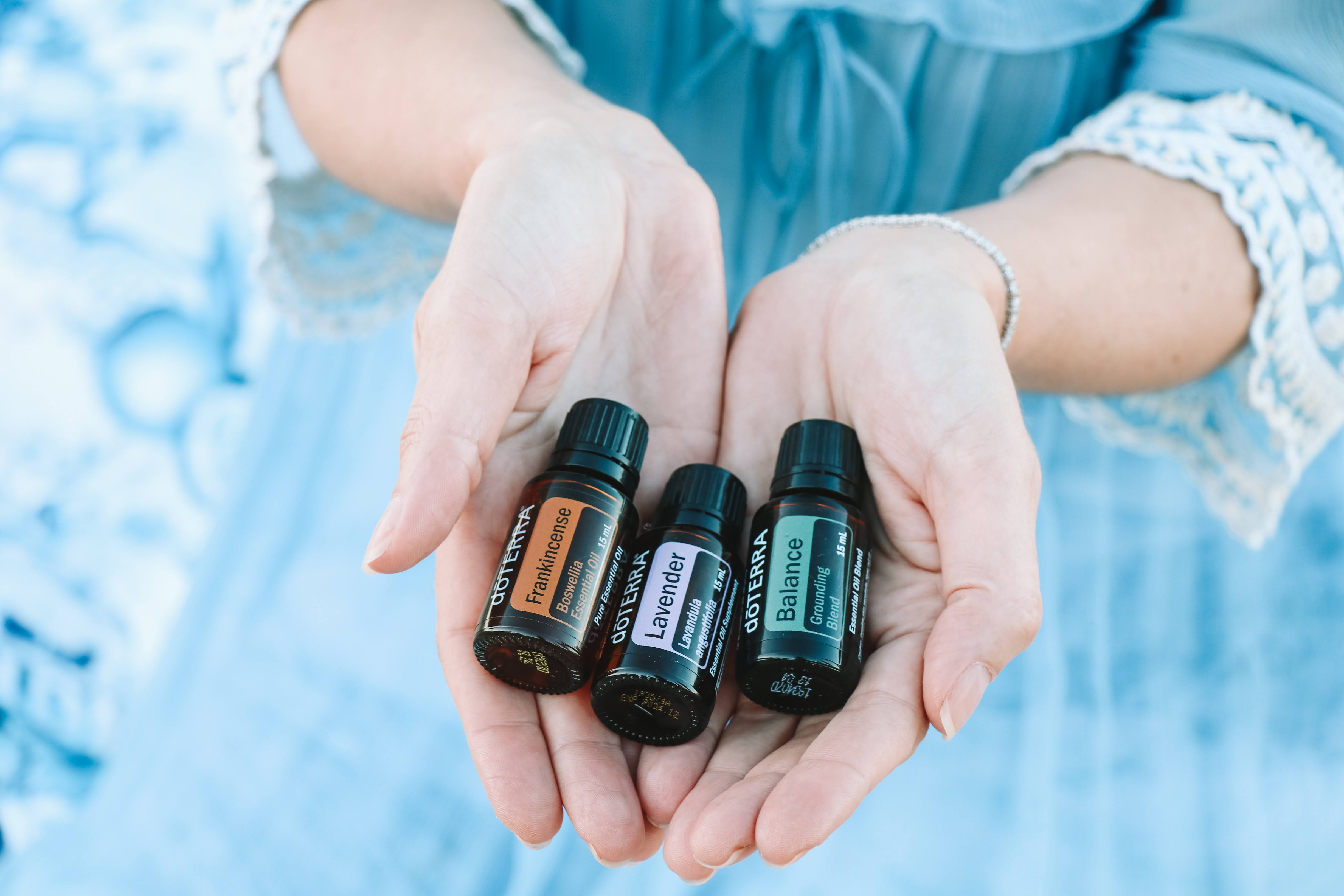While I'm grateful that my son is now enrolled to a school near our new home (story here), it could also mean we will be dealing with bugs that causes colds and fever. Well of course, he could potentially bring those at home. It's a fact of life. If there's a way to avoid it please share your secrets with me too. :D
In our home, when a family member is sick, we'd do the usual routine: drink medicine and take lots of rest. Until recently, I've rediscovered essential oils...

Photo by Chelsea Gates on Unsplash
Essential oils are natural plant extracts that are used for a variety of purposes, including to alleviate sickness. These oils contain the essence of the plant, including its unique fragrance and therapeutic properties. When used properly, essential oils can help alleviate symptoms of sickness such as congestion, headaches, and muscle aches.
Many essential oils have anti-inflammatory, antimicrobial, and analgesic properties, which can help fight infections and reduce inflammation. They can also help boost the immune system and promote overall wellness.
Essential oils can be used in a variety of ways, such as aromatherapy, massage, and topical application. They are generally considered safe when used as directed, although it is important to keep in mind that essential oils are highly concentrated and should be diluted before use.
It is always important to consult with a healthcare provider before using essential oils to alleviate sickness, especially if you are pregnant, nursing, or have any underlying health conditions. With the right knowledge and guidance, essential oils can be a powerful tool in supporting your body's natural healing processes.
No, essential oils do not take the place of medicine but I add it as an extra to help alleviate ailments. As of writing I'm having a stuffy nose. Yes, my breathing is a bit laboured but thankfully I have essential oils in handy.
Eucalyptus Oil
Eucalyptus oil has a strong aroma that can help clear the nasal passages and ease breathing. It contains a compound called eucalyptol, which has anti-inflammatory and decongestant properties.
Peppermint Oil
Peppermint oil contains menthol, which has a cooling effect that can help ease nasal congestion. It also has anti-inflammatory properties that can help reduce swelling in the nasal passages.
Tea Tree Oil
Tea tree oil has antiseptic and anti-inflammatory properties that can help reduce inflammation and fight infection in the respiratory tract. It can also help open up the airways and improve breathing.
Rosemary Oil
Rosemary oil has a refreshing aroma that can help ease congestion and promote easier breathing. It contains cineole, which is a natural decongestant that can help clear the sinuses.
Lavender Oil
Lavender oil has a soothing aroma that can help reduce stress and anxiety, which can contribute to nasal congestion. It also has anti-inflammatory properties that can help reduce swelling in the nasal passages.
How to Use
Easy. I simply diffuse them. Here's how...
- Choose a diffuser: There are many types of diffusers available, including ultrasonic, nebulizing, and heat diffusers. Choose one that works best for your needs and budget. In fact, I use a cheap one I got from Walmart but here's a cool looking diffuser made of ceramic which makes an attractive addition to any home.
- Add water: If your diffuser requires water, fill it with clean tap or distilled water, following the manufacturer's instructions.
- Add essential oils: Add 3-10 drops of essential oil to the water, depending on the size of your diffuser and the strength of the scent you desire. Be sure to use pure essential oils, not fragrance oils, which may contain synthetic chemicals.
- Turn on the diffuser: Follow the manufacturer's instructions for turning on your diffuser. The diffuser will then release a fine mist that carries the scent of the essential oils into the air.
- Enjoy: Sit back and enjoy the aroma! You may need to adjust the amount of essential oil you use, depending on the size of your space and your personal preferences. Keep in mind that some essential oils may be irritating or harmful to pets, so be sure to do your research before diffusing around animals.
